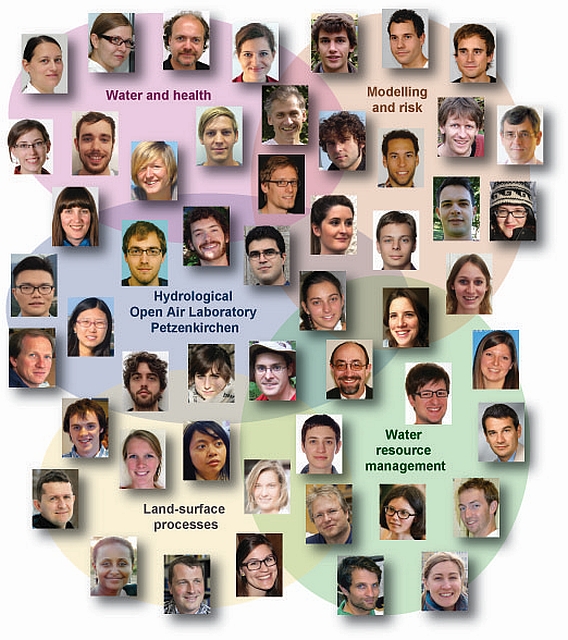Contact

Prof. Dr. Günter Blöschl
Chair of the Vienna Doctoral Programme on Water Resource Systems
Centre for Water Resource Systems
Tel.: +43-1-58801-22315
office@waterresources.at
Karlsplatz 13/222, A-1040 Vienna, Austria

Dr. Gemma Carr
Coordinator of the Vienna Doctoral Programme on Water Resource Systems
Centre for Water Resource Systems
Tel.: +43-1-58801-406655
office@waterresources.at
Karlsplatz 13/222, A-1040 Vienna, Austria
Publications
Carr, G., Loucks, D. P., Blanch, A. R., Blaschke, A. P., Brouwer, R., Bucher, C., Farnleitner, A. H., Fürnkranz-Prskawetz, A., Morgenroth, E., Parajka, J., Pfeifer, N., Rechberger, H., Wagner, W., Zessner, M. and Blöschl, G. (2017)
Emerging outcomes from a cross-disciplinary research and education programme.
Water Policy, 19, 463-478.
Blöschl, G., Carr, G., Bucher, C., Farnleitner, A. H., Rechberger, H., Wagner, W. and Zessner, M. 2012.
Promoting interdisciplinary education – the Vienna Doctoral Programme on Water Resource Systems.
Hydrology and Earth Systems Science, 16, 457-472.
Carr, G., Bucher, C. and Bloeschl, G. 2012. Developing Water Resources Research and Capacity in Europe - The Vienna Doctoral Programme.
Public Service Review: European Science and Technology, 15, 16-17. 472.
Research › Our philosophy
Understanding water resource systems is essential to secure human and ecosystem wellbeing. It is our philosophy that this can be gained only by an interdisciplinary approach.
Research and societal challenges span across academic disciplines making an interdisciplinary approach to water resource systems research essential. The Vienna Doctoral Programme on Water Resource Systems is training and developing young researchers in just such an approach. Through collaborative work we are searching out cross-disciplinary science questions and exploring them with a wide variety of methods from a broad selection of disciplines. We find that the most interesting science questions are also interdisciplinary.
Our strategy brings specialists together to take a holistic approach to water resource systems research. Using field experiments, laboratory methods, mathematical models, and analysis tools from engineering, biology, chemistry and socio-economics we are finding interconnections and producing new understandings of water resource systems.
Our research groups are divided into six clusters:
- Hydrological Open Air Laboratory (HOAL)
- Water and health
- Water resource management
- Land-surface processes
- Risk and water resources
- Modelling and system identification
Research students and staff from a broad collection of disciplines take part in each cluster group. Regular research cluster meetings and activities help our programme achieve genuine interdisciplinary interactions and collaborations.

